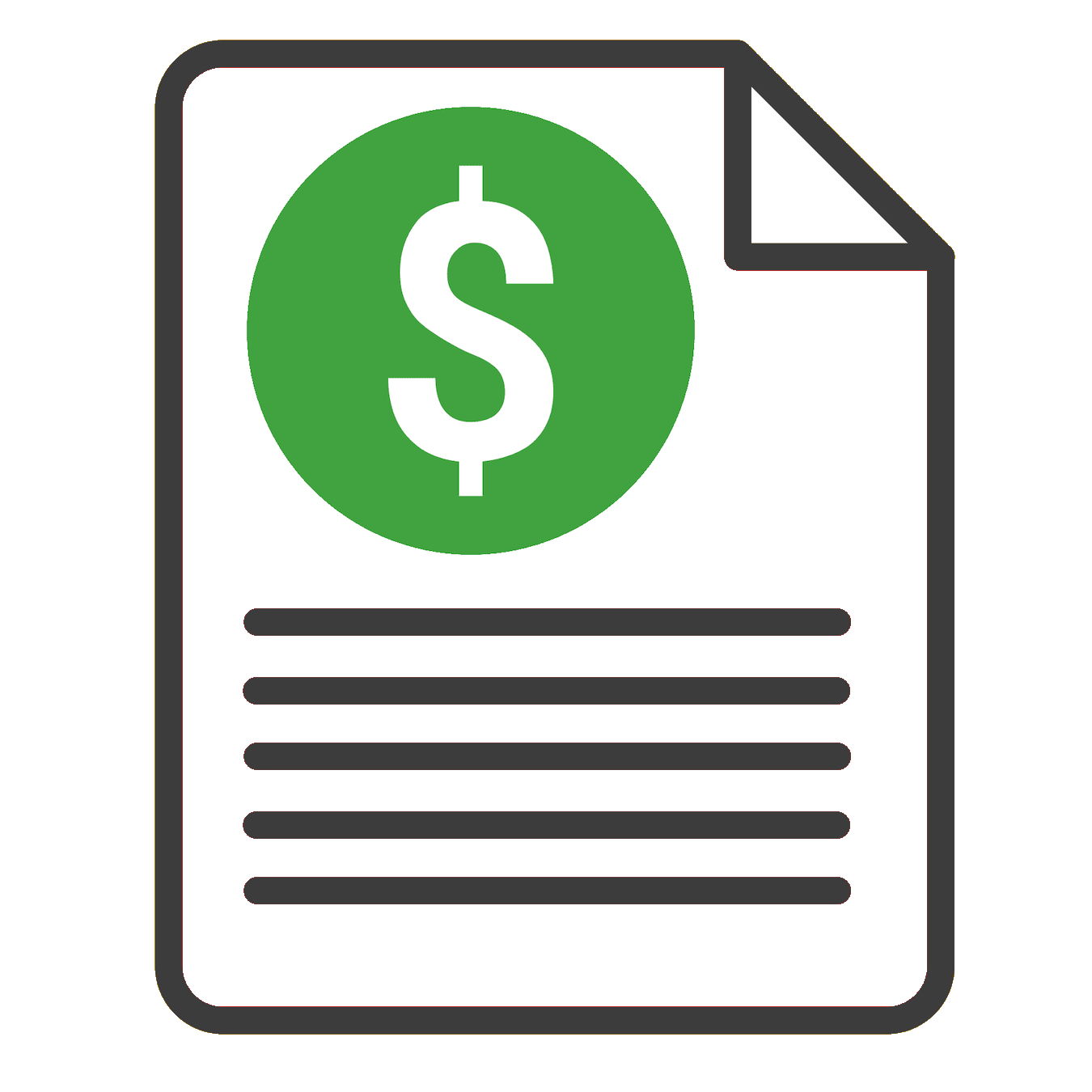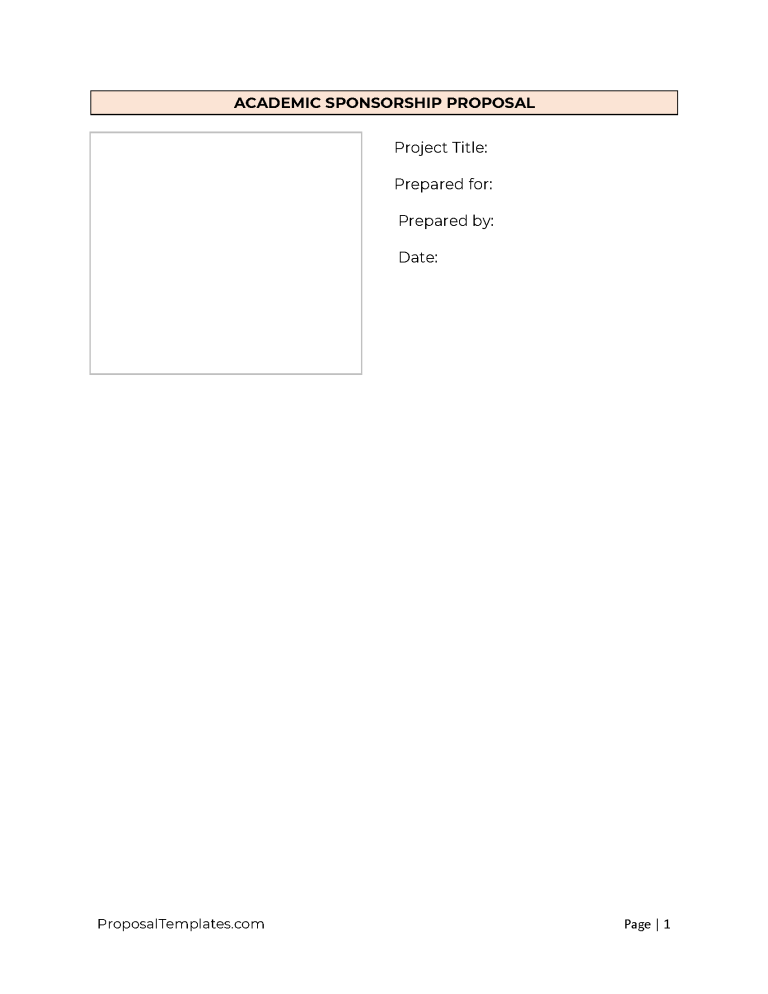Academic sponsorship proposals are often generated by educational facilities, institutions, or programs in order to seek sponsorship funding. Sponsors are generally offered increased visibility, recognition, and promotional efforts in exchange for their contributions or membership.
Types of Academic Sponsorship Proposals (11)
- Academic Competition – Proposals written to gain support for academic competitions (i.e., science fairs) from sponsors in exchange for benefits.
- Academic Event – This proposal discusses educational events (i.e., seminars) and an institution’s mission to approach sponsors seeking recognition.
- Career Development Program – Proposals typically used by colleges requesting sponsorships for job placement programs as well as events.
- Educational Program – Proposals sent by institutions seeking support for educational initiatives (i.e., STEM) and focusing on sponsor roles.
- Faculty Development or Research Chair – Proposals made by institutions specifically to acquire sponsor aid in improving their faculty.
- Research Center Sponsorship – Proposals from research facilities such as libraries requesting sponsorship to improve resources.
- Research Sponsorship – This proposal discusses the methodologies and expected outcomes to stimulate a potential sponsor to provide support.
- Scholarship or Fellowship – A proposal that is focused on student impacts and sponsor recognition to secure tuition funding.
- Student Activities Sponsorship – This proposal requests sponsor support for student activities and events such as conferences.
- Student Organization or Club – Proposals from student-led initiatives and organizations presenting their mission while requesting sponsorship.
- University Athletics Sponsorship – A proposal highlighting the recognition and branding potential associated with sponsoring a university athlete or team.
1. Introduction
Make an excellent first impression with a well-constructed cover page that is equally attractive and sleek. Also, display some basic information about the sender to let the recipient know the subject and the source.
- Proposal Title, Initiative Title
- Institution/Organization’s Name
- Institution/Organization Logo
- Contact information, Website
- Table of Contents, Supporting Visuals
2. Executive Summary
Deliver a discourse on this proposal’s content that is both brief as well as informative. Additionally, highlight topics or sponsorship features the potential sponsor would find particularly interesting.
- Introduction, About, Marketing Potentials
- Target Objectives, Sponsorship Needs
- Sponsorship Packages, Financial Information
- Reporting, Contact Information, Testimonials
- References, Appendix, Call To Action
3. Introduction To Academic Sponsorship Proposal
Compose an introduction of the sponsorship’s originators while presenting their intentions and needs. Moreover, discuss the stakes they hold in the academic project or event’s success in a way that aligns with the potential sponsor’s goals.
- Institution Information, Background, Overall Mission
- Academic Initiative, Target Objectives, History, Significance
- Unique Selling Points (USP), Value Proposition
- Return On Investment (ROI), Case Studies
- CTA, Goal Alignments
4. Initiative Overview
Produce an informative discussion on the academic initiative’s details, and especially how the objectives align naturally with the potential sponsor’s. Similarly, mention the significance of the project or initiative to the academic community.
- Initiative Title, Description, USP, Research
- Objectives, Timeline, Goals, Schedule, Curriculum
- Target Audience, Community Impact, Innovations
- Initiative Team, Budgets, Milestones, Funding Needs
- Academic Impact, Academic Community Engagement
5. Initiative Needs And Justification
Build up the sponsor’s role in the academic project since they should consider their contributions essential for project success. Justify their involvement by convincing the potential sponsor that their sponsorship would be especially necessary to the academic initiative.
- Financial Support, In-Kind Contributions
- Research Funding, Scholarship Funding, Fellowships
- Program Support, Curriculum Design Expenses
- Program Support, Community Outreach Resources
- Collaborative, Cost Benefit Analysis, Administrative Costs
6. Academic Sponsor Benefits
Present the perks and benefits of this academic sponsorship, such as its return on investment (ROI) and sponsor privileges. Present some case studies with satisfied sponsors because these will demonstrate success to the prospective academic sponsor.
- Recognition, Branding, Acknowledgements, Reports
- Exclusivity, Advertising, Exposure, Speaking Opportunities
- Research Access, Networking Potentials, Recruitments
- Curriculum Development Involvement, Student Internships
- Scholarship Naming Privileges, Media Coverage
7. Academic Sponsorship Tiers
If relevant, lay out the responsibilities as well as the benefits in the sponsorship tiers offered. That is, aid the prospective sponsor in selecting a tier appropriate to their level of commitment.
- Title Sponsor, Platinum, Gold, Silver
- Bronze, Supporter Status, Contributor Status
- In-Kind Sponsor, Customization, Branding Levels
- Privileges, Rights, Limitations, ROI, USP
- Advertising Levels, PR Levels, CTA, Contact Information
8. Financial Information
Formally document the academic initiative’s budget as well as the costs of sponsorship. Thoroughly explain this budget by reporting its total cost together with every revenue source and expense.
- Total Initiative Budget, Sponsorship Amount (Requested)
- Cost Breakdowns, Personnel, Equipment, Supplies, Travel
- Marketing, Event Costs (If Relevant), Scholarship Costs
- Research, Development, Administrative Costs, Overhead
- Funding Sources, Allocation, Measurable Outcomes
9. Marketing And PR
Inform the potential academic sponsor of the marketing and public relations strategies promoting the initiative since this affects the sponsor’s ROI. For example, describe the digital campaigns (i.e., email blasts) used, the schedules, and the level of the academic sponsor’s inclusion.
- Target Audience, Marketing Objectives, Messaging
- Branding, Marketing Channels, Digital Marketing
- Print Materials, Events, Timelines, PR, Testing
- Optimization, Contingency Planning, KPIs, Feedback
- Promotion Process, Promotional Materials, Collaboration
10. Audience Engagement And Reach
Explain to the prospective sponsor the audience demographics (i.e., age) for the academic initiative. Additionally, discuss potential audience interactions, access, and reach available to the sponsor through the organizer’s efforts.
- Target Audience, Engagement Strategies, Seminars
- Interactive Activities, Webinars, Online Engagements
- Networking Activities, Q&A Sessions, Forums, Panels
- Mentorship, Hands-On Learning Events, Support, Feedback
- Community Involvement, Cultural Considerations
11. Academic Initiative Metrics
List, then explain the key performance indicators (KPIs) that help define the success of the academic initiative. It is also essential that the reporting schedule and format of the educational initiative’s success metrics are presented.
- Goals, Qualitative Metrics, Quantitative Assessment
- Baseline Data, Data Collection, Stakeholder Involvement
- Evaluation Criteria, Data Analysis, Report Structure, ROI
- Impact Assessment, KPIs, Surveys, Feedback, Case Studies
- Contingency Plans, Legal Considerations, Ethical Concerns
12. Organization And Initiative Transparency
Emphatically present the academic initiative’s commitment to accountability. Describe the reports that can be expected during the sponsorship agreement’s lifetime.
- Contingency Plans, Accountability, Budget Transparency
- Audits, Reviews, Customized Reporting, Metrics, KPIs
- Communication Channels, Decision-Making Transparency
- Stakeholder Involvement, Frequency, Feedback Tools
- Data Security, Legal Consideration, Ethical Compliance
13. References
If there are any data sources, studies, or external research results involved with or supporting this proposal, then discuss them. Summarize this information while citing it in the appendix accordingly.
- Citations, Consistency, Relevance
- Academic Integrity, Appendix Direction
- Proposal Relevance, Source Title, Author
- Publication Date, Source Locations
- Clarity, Professionalism, Prior Work Acknowledgments
14. Testimonials
Add to the case studies mentioned earlier by providing any especially compelling testimonials from previous sponsors, stakeholders, and beneficiaries. Also include endorsements and press clippings if possible.
- Sources, Objective Alignments, Balance
- Consent, Permissions, Testimonial Statement
- Relevance, Diversity, Impact, Visual Aids
- Endorsements, Authenticity
- Attribution, CTA, Contact Information
15. Organization Contacts
Supply the identity, role, and contact details of the academic initiative’s primary contact so it is readily available. Provide the availability of this contact in addition to secondary and additional contact options.
- Office Address, Office Hours, Phone Numbers
- Institution Organizational Chart, Preferred Methods
- Websites, Email Addresses, Social Media Links
- Primary Contact, Project Team Contacts
- Language Preferences, Mailing Address
16. Academic Sponsorship Conclusion
Conclude the academic sponsorship proposal professionally and especially enthusiastically. Invite the prospective academic sponsor to explore this opportunity further and reproduce the primary contact’s information.
- Key Point Summary, USP
- Value Proposition Reiteration
- Sponsor Benefits, Commitment
- Closing, CTA, Encouragement
- Appendix Reminder, Contact Information
17. Appendices
Organize an appendix specifically to hold supplementary material such as organization charts or calendars. Also, if this is a substantial area, compose a table of contents to enable easier access.
- Permissions, Feedback Surveys, Terms And Conditions
- Endorsements, IRB (Institution Review Board) Approvals
- Quotes, Estimates, Testimonials, Sponsorship Packages
- Timelines, Media Coverage, Research Findings
- Visual Aids, Brochures, Timelines, Compliance Documents
18. Academic Sponsorship Terms And Conditions
Present every sponsorship agreement and disclosure, as well as all other required legal information. Also, reiterate the contact information required to answer any legal questions the academic sponsor may have.
- Sponsorship Agreement, Scope Of Agreement
- Definitions, Financial Commitment, Payment Terms
- Sponsorship Details, Recognition, Reporting, Accountability
- Conflicts Of Interest, Termination Clauses, Liabilities
- Governing Law, Entire Agreement, Signatures

